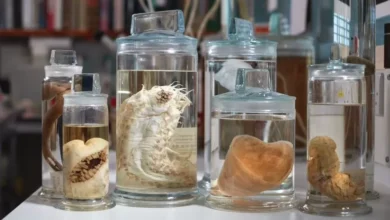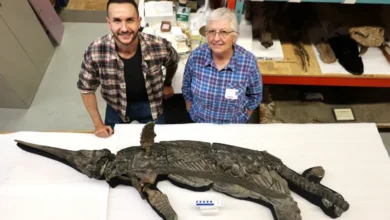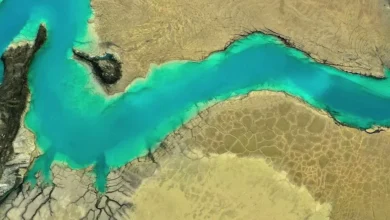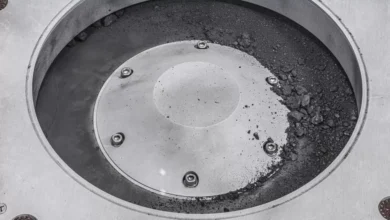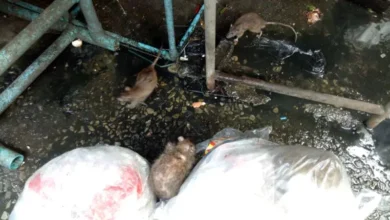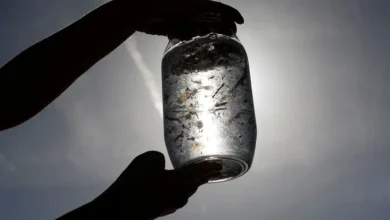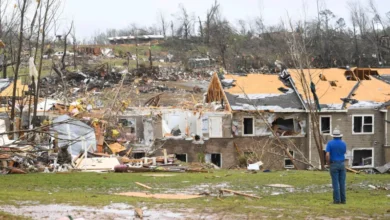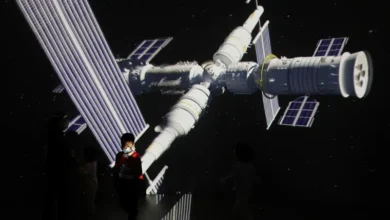‘Bullet in my head’: The Indian man who crawled to escape Russia’s Ukraine war
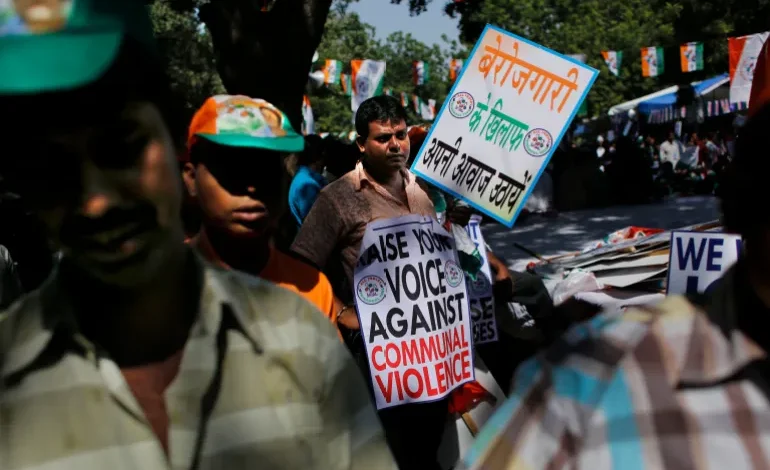
A tangled gun strap almost cost Prince Sebastian his life.
It was 6pm local time on February 4. Prince and his contingent of soldiers fighting for the Russian army were advancing towards a battlefield in Luhansk in occupied Ukraine. It wasn’t what Prince – a fisherman from the southern Indian state of Kerala 5,470km (3,400 miles) away – had signed up for, but at that moment, he felt he had no option but to keep moving, a Russian soldier by his side, the frantic symphony of gunfire their unwelcome soundtrack.
Suddenly, there was chaos as they came under attack, a hail of bullets fired in their direction. A superior barked out orders, asking the soldiers to fire back. But in the split second that Prince lost because of the tangled strap, a bullet ricocheted off their Russian tank with a sickening thud and pierced his left ear, flooding his mouth with blood.
“I crumpled onto a dead Russian soldier,” Prince recalls. “I was hit, but there was no pain, it was numbness for a few seconds.”
When he slowly came to his wits, Prince began a long, 3km (1.8 miles) crawl through mud and an even longer fight to escape Russia’s army. Now, two months later, he is back home in Anju Thengu, a coastal village near Kerala’s capital Thiruvananthapuram, safe from the war he had found himself trapped in.
But as the lean 24-year-old recalls the horrors that he managed to leave behind, he knows he has returned to the very life he had tried to get away from when he went to Russia: one of poverty, joblessness and an uncertain future. He’s back where he started, with a lifetime’s nightmares to boot.
Fishing for a future
It was the dream of a new start that made Prince and his fishermen cousins, Vineeth Silva and Tinu Paniadiam, all in their early 20s, decide to migrate to Russia in January.
Increasingly erratic weather patterns have reduced both the number of days fisherfolk can head out to sea and the catch they return with. The shoreline has suffered from human activity. And there are few other jobs around. Kerala has long had among India’s best education and health indices, but it also has the highest unemployment rates for young adults in the country: more than 28 percent, compared with a national average of 10 percent for people in the 15-29 age group.
“In the past, some 10 years ago, when I started to go fishing with my father and uncles, a good catch was guaranteed and the fishing season used to last for more than six months,” Prince said, four days after the returning from the Russia-Ukraine warfront. “But during the last few years, the fishing season has shrunk to three months and the catches have become very poor.”The offer of a job as a security guard in Russia, which came through a recruiter, proved irresistible for Prince and his cousins. In freezing January, they arrived in Moscow after each paying $8,000 to the recruiter, only to be separated on landing by the recruiter’s Indian representative in Moscow.
Prince was taken away to an apartment, where he was confined for four days. He got food, but no answers to the gnawing doubts that were growing by the hour: What was going on?
“Finally, the truth emerged – we weren’t there for the advertised position; we were expected to join the Russian army as helpers,” Prince said.
The recruiter, whom the cousins had already paid in full, was no longer reachable. “We had no choice but to follow the representative’s orders,” Prince added.
A Russian official took Prince to an army camp in Rostov, the southern Russian city that is the headquarters of the Kremlin’s war in Ukraine. The officers spoke to Prince in English, but he had to sign several documents in Russian – which he couldn’t understand.
“I realised we had been cheated. But I had no other option but to obey the barking orders of the Russian commanders. I braced myself to adjust,” Prince said.
Prince, along with hundreds of Russians and a “handful” of Indians underwent training in physical fitness and first aid at the military camp. After 10 days, they were moved to another camp nearby where they were given arms training for 13 days – bodies sculpted for a life at sea being moulded to fire weapons.
They learned how to use AK-47s, rocket-propelled grenades, and M60 machine guns – far removed from what Prince thought he would be doing in Russia when he boarded the flight from India.
Confetti of flesh, bone
None of that weapons training would help him when the bullet hit him. Disoriented and grappling for consciousness, he willed his body to move. He dug his elbows into the grime-caked earth, clawing his way back to a nearby trench.
Suddenly, a menacing whir filled the air. A drone loomed above.
“I lunged for cover, but it was too late,” Prince recalled. With a chilling hiss, the drone unleashed a grenade. It landed on a Russian soldier near Prince. In a blinding flash and a deafening roar, an eruption of fire obliterated the Russian soldier. “Flesh and bone rained down on me like confetti.”
Amid a revolting smell of gunpowder and burned flesh, he had screamed.
“I thought I would also die,” he said, lowering his shirt on his left shoulder, revealing scars from the grenade explosion – some partially healed, others still raw, snaked across his torso. He gingerly rolls up a trouser leg to show his calf, with burns – some faded, others still a vivid reminder of the searing heat from the blast. “It was blood, blood, blood.”
Prince had shed his heavy jacket, a biscuit packet and medicines needed for survival, and crawled away. His vision blurry, he heard somebody calling out, “Prince, come quickly!”
“It was Vineet, my cousin, whom I hadn’t seen in a month. He had witnessed my fall after the grenade explosion,” Prince said.
“In a few minutes, I reached near the trench. Vineeth pulled me down into it. It was dark by then. I couldn’t see the blood drenching my uniform, but I could smell blood. And I was losing consciousness. I saw Vineeth injecting me with painkillers,” Prince remembered.
Prince and Vineeth decided to rest that night in the trench, which they knew led back to a Russian army base camp. As dawn arrived, they began to crawl once more.
“By the time I reached base camp, I was nearly dead. Vineeth had filled the commanders in on what happened. The last thing I remember was someone rushing in with a stretcher and carrying me away,” Prince recounted.
